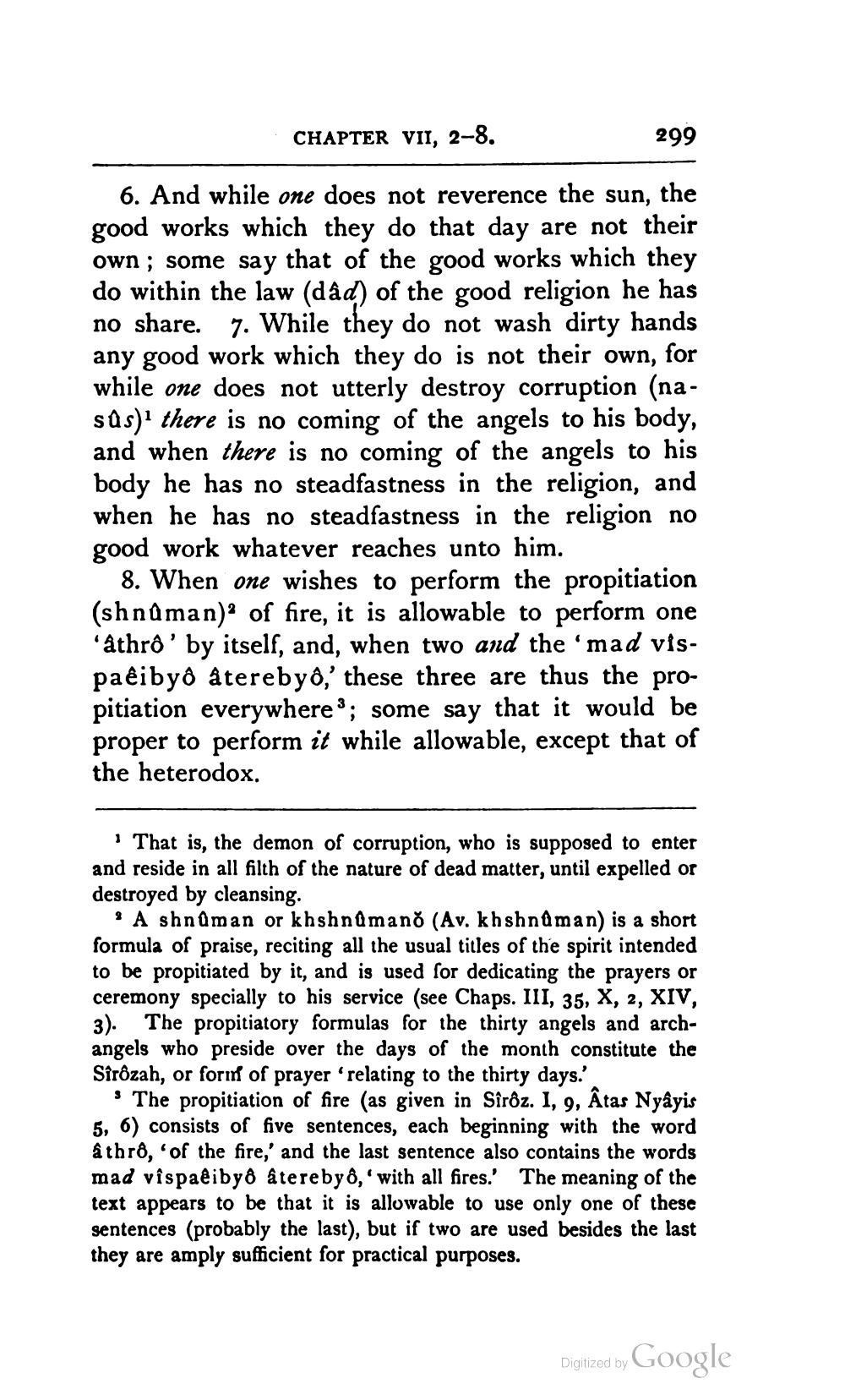________________
CHAPTER VII, 2-8.
299
6. And while one does not reverence the sun, the good works which they do that day are not their own; some say that of the good works which they do within the law (dad) of the good religion he has no share. 7. While they do not wash dirty hands any good work which they do is not their own, for while one does not utterly destroy corruption (nasas): there is no coming of the angels to his body, and when there is no coming of the angels to his body he has no steadfastness in the religion, and when he has no steadfastness in the religion no good work whatever reaches unto him.
8. When one wishes to perform the propitiation (sh nûman)' of fire, it is allowable to perform one 'athró' by itself, and, when two and the 'mad vispaêibyð áterebyo,' these three are thus the propitiation everywhere”; some say that it would be proper to perform it while allowable, except that of the heterodox.
That is, the demon of corruption, who is supposed to enter and reside in all filth of the nature of dead matter, until expelled or destroyed by cleansing.
* A shnûman or khshnûmano (Av. khsh naman) is a short formula of praise, reciting all the usual titles of the spirit intended to be propitiated by it, and is used for dedicating the prayers or ceremony specially to his service (see Chaps. III, 35, X, 2, XIV, 3). The propitiatory formulas for the thirty angels and archangels who preside over the days of the month constitute the Sîrôzah, or form of prayer relating to the thirty days.'
The propitiation of fire (as given in Sîrôz. I, 9, Âtas Nyayis 5, 6) consists of five sentences, each beginning with the word athró, of the fire,' and the last sentence also contains the words mad vîspaêibyő áterebyô,' with all fires.' The meaning of the text appears to be that it is allowable to use only one of these sentences (probably the last), but if two are used besides the last they are amply sufficient for practical purposes.
Digitized by Google




